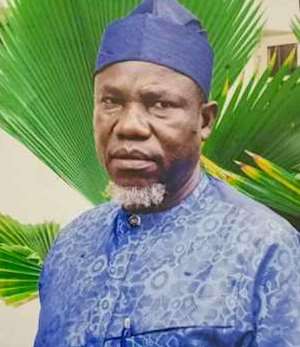 Isaac Asabor
Isaac AsaborIn a country where silence has become a symptom of suffering, hunger keeps the poor awake while fear robs the rich of peace. Can Tinubu’s government bridge the widening gap before it is too late?
In today’s Nigeria, the night tells the story the government refuses to admit. When the sun sets, the nation does not rest. The poor lie awake with rumbling stomachs, listening to the eerie quietness of neighborhoods where food has become a luxury. Meanwhile, the rich toss and turn, not from lack of comfort, but from the fear that the walls they built to protect themselves from the hungry masses may no longer be high enough.
This paradox, where the poor cannot sleep because they are hungry, and the rich cannot sleep because the poor would not let them, captures the reality of a nation teetering on the edge of both economic and social implosion.
Across street corners, markets, motor parks, and makeshift homes, Nigerians no longer speak in hushed tones. The frustration is loud. It groans from empty kitchens and flares up in rising crime rates, desperate protests, and subtle rebellion. Hunger, once just a social issue, has become a political time bomb.
Nigeria’s inflation is no longer a statistic, it is a sentence. A bag of rice now competes with monthly salaries. Tomatoes and onions, once humble ingredients, are priced like exotic imports. And while government spokesmen juggle figures at press conferences, a growing number of citizens now live below the line, not the poverty line, but the line of human dignity.
The poor, unable to sleep due to the clawing ache of hunger, are watching. They see the opulence of the elite, they hear the denial in official statements, and they are losing patience. What they lack in food, they make up for in anger, and anger has never slept through a revolution.
We often think wealth insulates. But in a country like Nigeria, where the gap between the rich and the poor has grown into a canyon, even gated mansions are not safe from the tremors below. The rich may not know hunger, but they now know fear. Fear of home invasions. Fear of kidnappings. Fear of being caught at the wrong traffic stop. Fear of the mob’s wrath.
The growing restlessness of the poor has cast a long shadow on the comfort of the rich. No number of armed guards can keep inequality from knocking on your gate. As things stand, it is not just the poor who are awake in the dead of night. The rich too have joined them, not in solidarity, but in anxiety.
President Bola Ahmed Tinubu inherited a broken economy. No doubt. But he also stepped into office with promises of renewed hope. Now, less than a year into his administration, the cracks are no longer hidden, they are full-blown fissures.
Fuel subsidy removal was hailed as bold, yet it plunged millions into hardship. The floating of the naira may please international lenders, but it has devastated small businesses. Palliative announcements dominate headlines, yet the poor still ask: “Where is the food?”
This is not the time for elitist economic theories. It is not the time for grand summits with no grassroots feedback. What Nigeria needs now is governance with a soul. Practical, visible, and impactful governance that addresses the hunger of the poor and calms the fear of the rich.
The government must prioritize food security by subsidizing essential food items and supporting local farmers. This support should include access to credit facilities, modern mechanized tools, and secure transportation routes free from harassment and extortion.
Rather than making media announcements about palliatives, the government should provide tangible evidence of implementation. Every poor Nigerian deserves to experience the intervention directly, not just hear about it on television.
What the streets need are not more Special Assistants, but real jobs, factory workers, tech hubs, vocational training centers, and fair wages for honest work.
The presidency must listen to everyday Nigerians, not just governors and ministers. The voices of traders, artisans, students, and market women must also be heard and considered in policymaking.
To the rich, hear this: your wealth will not protect you from a nation gone rogue. It is not enough to drive SUVs past the poor. You must invest in a society where safety is not bought, but assured through justice and fairness. Philanthropy is good, but systemic change is better.
If the rich continue to feast while the poor starve, a day will come when no one eats in peace.
Nigeria stands at a crossroads. One road leads to continued denial, widening inequality, and inevitable chaos. The other road leads to hard but necessary reforms, equity-driven policies, and national healing.
The sleeplessness of the poor should be a red flag to the Tinubu-led administration. But even more alarming is the insomnia of the rich. When those with nothing left to lose begin to move, no amount of money or security can stop them.
The poor are already awake, battling daily hardship. The rich are awake too, watching closely. In a nation where no one can sleep peacefully, it is only a matter of time before the frustration erupts into a collective outcry.


